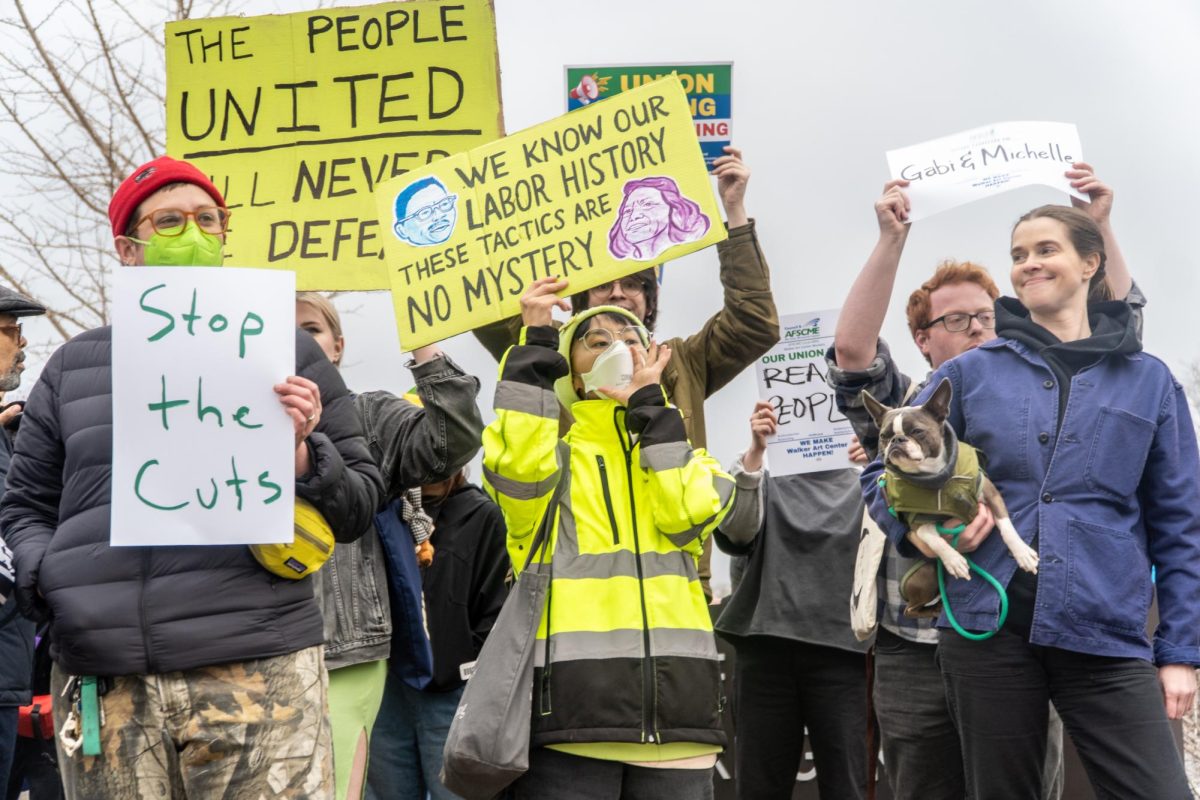The first time Dua Saleh performed at an open mic, they were terrified. Saleh stood shaking on stage, having finally summoned up the courage to participate rather than just observe.
It was their senior year of high school, and they had been writing poetry since the age of four. It had always just been a personal endeavor. Now, they’re an up-and-coming musician with over 11,000 followers on Instagram. A viral tweet sharing a music video Saleh produced with their phone has over 18,000 likes.
Before all of the recognition, that week at the Re-Verb Open Mic hosted by Tru Art Speaks, Saleh began to feel a shift.
“As I continued to perform, more people kept inviting me to perform,” Saleh said. “I even signed up for Button Poetry and started performing stronger because I think there was something in me at the time.”
Saleh, who has since transitioned from poetry to music, grew up in the Rondo neighborhood of St. Paul, where traditional Sudani music was played through speakers in their home, along with jazz, hip-hop and pop.
“I’m always trying to make sure that I’m injecting as much diversity in my veins as I can so that my sound isn’t bogged down to one thing,” Saleh said. “I just enjoy listening to different genres of music for my personal mental health and joy.”
By mid-college, Saleh felt that poetry wasn’t an adequate outlet for processing their emotions anymore. They were a full-time student at Augsburg University, working 40 hours a week and trying to figure out their relationship with their gender.
“Poetry wasn’t providing me enough nurturing sustenance,” Saleh said. “I was trying to do way too much, and my body was just like, ‘No, you need to release something.’ The melodies started coming in, and I think that was my body reacting and wanting to heal me, in some ways.”
The most distinctive part of Saleh’s music is the lyrics. When they performed their song “Sugar Mama” for COLORS — a YouTube channel which showcases musicians from around the world — it was apparent in the comments just how potent Saleh’s lyrics are. The video now has a half million views on YouTube.
“Their writing is just super dense and really heavy and deep, but it also just like comes out really fluidly and quickly,” said Alec Ness, who has produced music with Saleh. “The more that they do this, the more you get a picture of what they’re trying to do musically.”
Saleh’s background in poetry allows for idiosyncratic vocabulary, with phrases like “Persistent halitosis / Perplexing braggadocios” in their song “Sugar Mama.”
“I remember definitely being really struck by [Saleh’s voice],” said Psymun, a Twin Cities musician who has worked with Saleh in the past. “I remember being excited by just how quick they are to come up with ideas, and it’s just immediately really fun.”
Much of what Saleh writes is still tied to personal experience. Yet, it’s vague enough to invite listeners to relate to the lyrics in their own way.
“Seeing people who weren’t necessarily trying to represent me but had the same identities that I had shifted my self-esteem and had pushed me to continually seek out myself in music,” they said.
Saleh uses this idea in more than just their music. They’ve incorporated it into an Instagram filter that looks like a heat lens, and it was used to make the first fan video made solely out of Instagram filters for the song “Pretty Kitten.” It represents Saleh’s gender non-conforming identity, which fans have related to.
“Just because of the ways that beauty standards are so intense and how people don’t necessarily align with their gender identity, a lot of people [on social media] want their face to be kind of blurred,” Saleh said.
Although Saleh is quickly gaining a national fan base, they’re still finding what sound best represents them and their music. With future releases, like “mOth” on Feb. 21, they’ll be experimenting with a number of genres.
“I still don’t know what my sound is because I wasn’t even trying to really work on music initially,” Saleh said. “So, like the fact that it’s my career now is kind of weird. I’m still just trying to figure my identity as an artist.”














